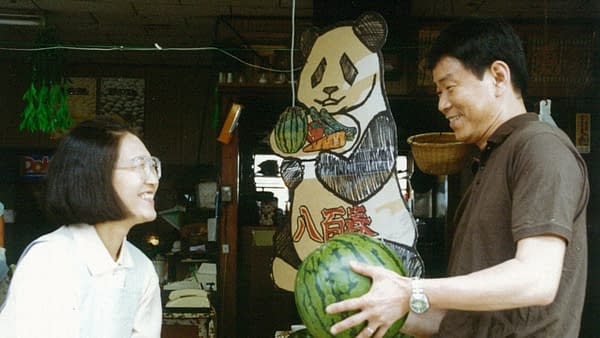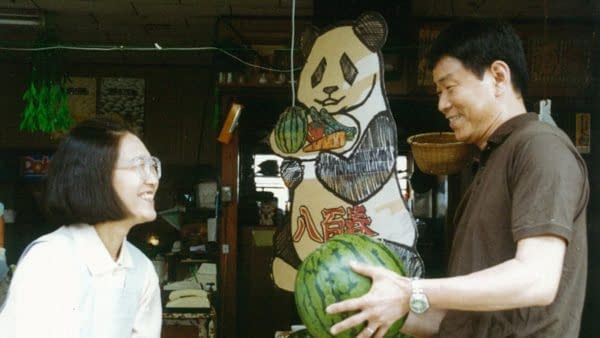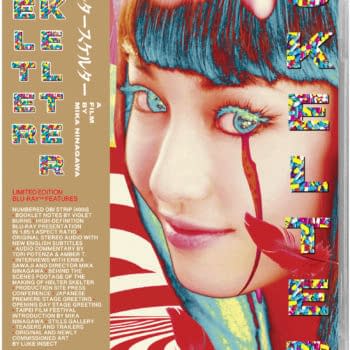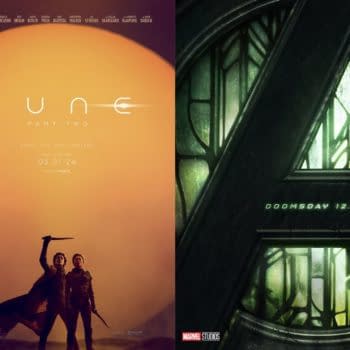Posted in: Movies, Review | Tagged: Beijing Watermelon, comedy-drama, frank capra, house, Japanese cinema, Labyrinth of Cinema, Meteograph, neorealism, Nobuhiko Obayashi
Beijing Watermelon is a Capra-esque Portrait of a Lost, Nicer Time
Beijing Watermelon is late director Nobuhiko Obayashi's Capra-esque comedy drama about a Japanese-Chinese Friendship from a kinder time
Article Summary
- Explore Nobuhiko Obayashi's touching film Beijing Watermelon at Metrograph NYC.
- Beijing Watermelon reflects shared humanist values between China and Japan.
- The film offers a nlook at 1980s Japan and liberal openness to people from abroad.
- Available for streaming on Criterion Channel and for purchase on Blu-ray.
The works of late Japanese filmmaker Nobuhiko Obayashi is ripe for reassessment, and the Metrograph in New York City is running three of his most diverse movies, the cult horror comedy House, his final mini-epic Labyrinth of Cinema, and his warmest, most humane work, Beijing Watermelon.

Beijing Watermelon is based on a true story about a family man named Shunzo (comedian Bengu) who runs a modest grocery store on the outskirts of Japan. His life changes when he helps a poor Chinese exchange student who can't afford food. It starts with him reluctantly giving some vegetables to the kid at a huge discount after losing a game of rock, paper, scissors. When he runs into the kid again collapsing from malnutrition, he takes him to the hospital and meets his fellow exchange students who tell him they're too poor to afford basic groceries. Something awakes in Shunzo, and without even thinking about it, he starts helping them out every chance he gets, taking them on trips to the city so they can study the buildings as part of their architecture studies. It's not that he can't say no to them, they barely even ask, becoming their translator, personal shopper, chaperone and father figure. His compulsion to help them gets to the point of putting the survival of his healthy and already struggling grocery store at risk, to the frustration of his put-upon but equally kind-hearted wife. Shunzo and his wife become surrogate parents to this small group of Chinese students, and their relationship changes their lives in a way none of them ever predicted.
It feels melancholic to watch Bejing Watermelon now, knowing tensions between China, Japan, and the rest of the world are so high. Obayashi made Beijing Watermelon as a response to the Tiananmen Square protests in China as an expression of humanist friendship and solidarity with young people in China. There's a subtext of atonement from the Japanese after the atrocities they committed upon China in the Second World War. The film is a time capsule of a different Japan in the 1980s when liberal values and an openness to people from abroad was more prevalent. Oyabashi directed the film with a documentary neorealist style where the actors were encouraged to talk over each other and move around, and the redemptive story of community feels like a throwback to Frank Capra movies and an undertone of oddball humour. They really don't make movies like Beijing Watermelon anymore.
Beijing watermelon is part of the Obayashi x 3 retrospective at the Metrograph this week and available on the Criterion Channel and on Blu-ray.














